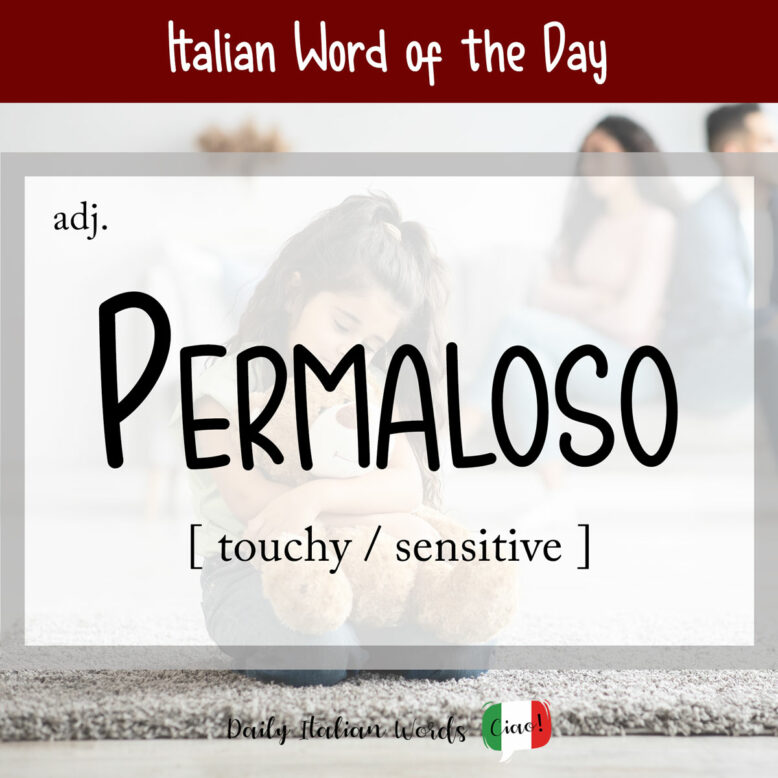It seems that my young son’s personality is forever changing. At six months, he was an adventurous and confident baby. But then, just a week shy of turning ten months old, he suddenly became extremely clingy and permaloso, crying at the strangest things, from crinkling paper to the sound of me sweeping up his post-dinner mess with the brush and pan. And shame on you if you dared so much as blow your nose in his presence!
As you might have guessed, permaloso (masculine adjective) means touchy, (over)sensitive or cranky in Italian. It is used to describe a person who is easily hurt, upset or offended, even for trivial reasons.

Because it is an adjective, the ending changes for the feminine and plural forms:
- permalosa = feminine, singular
- permalosi = masculine, plural
- permalose = feminine, plural
Mica posso dirgli la verità: è troppo permaloso!
There’s no way I can tell him the truth: he’s too sensitive!

The diminutive form permalosetto means somewhat sensitive.
Permaloso (and its feminine equivalent permalosa) can also function as a noun meaning touchy / oversensitive person. However, it tends to be used much more frequently as an adjective, barring a few expressions like the one below.
Non fare la permalosa! Ti ho detto che mi dispiace!
Don’t be so sensitive! I said I’m sorry!
It derives from the words per male (lit: for bad) which appeared in the 17th century expression aversene per male (to take offence).
Some related terms include:
- permalosamente = in a touchy way
- permalosità = touchiness
- impermalosirsi = to take offence
Heather Broster is a graduate with honours in linguistics from the University of Western Ontario. She is an aspiring polyglot, proficient in English and Italian, as well as Japanese, Welsh, and French to varying degrees of fluency. Originally from Toronto, Heather has resided in various countries, notably Italy for a period of six years. Her primary focus lies in the fields of language acquisition, education, and bilingual instruction.


